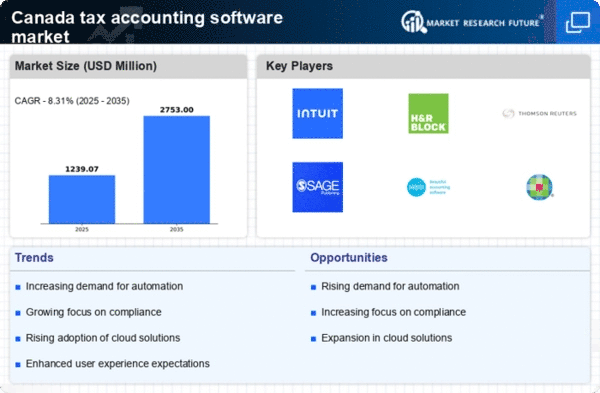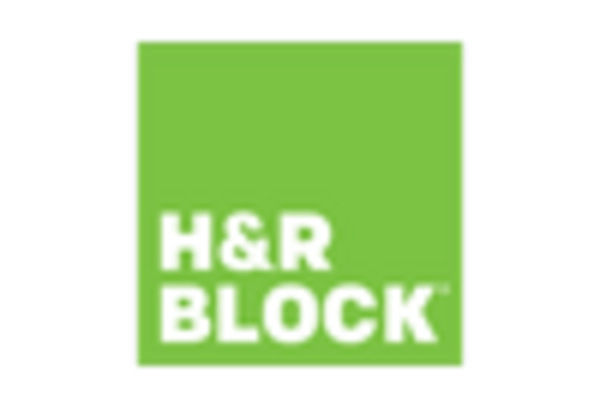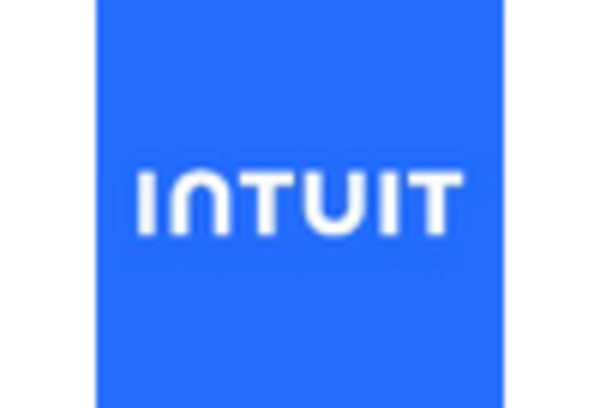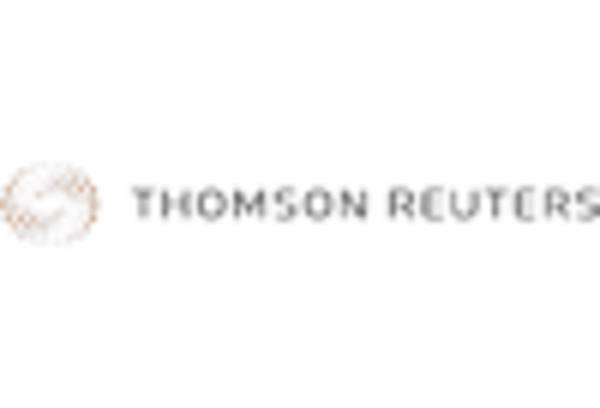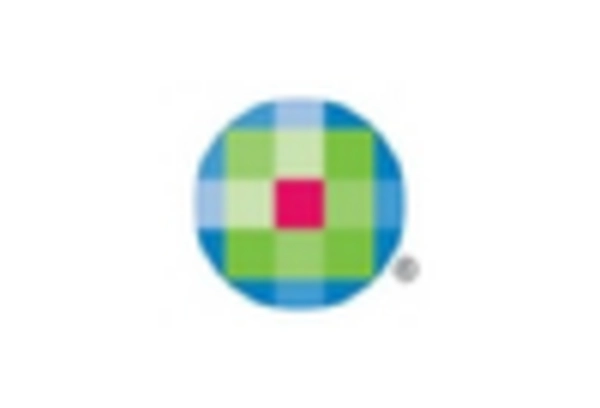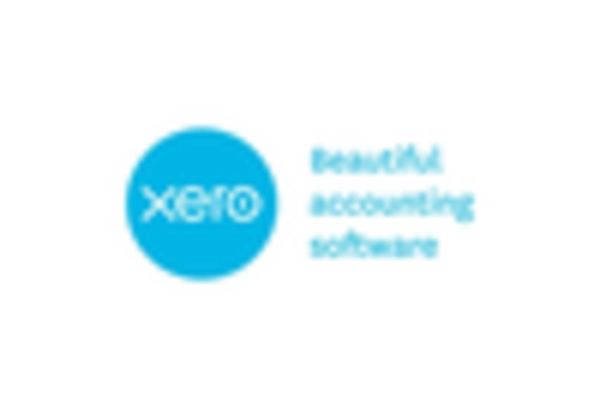Growing Small Business Sector
The expansion of the small business sector in Canada is a significant driver for the tax accounting-software market. As more entrepreneurs establish their businesses, there is an increasing need for accessible and affordable tax solutions tailored to their specific needs. In 2025, it is estimated that small businesses will account for over 98% of all Canadian businesses, creating a substantial market for tax software designed for this demographic. This growth presents opportunities for software providers to develop user-friendly solutions that cater to the unique challenges faced by small enterprises, thereby stimulating demand within the tax accounting-software market.
Regulatory Compliance Demands
the tax accounting-software market in Canada is influenced by the need for compliance with evolving tax regulations. As the Canadian government implements new tax laws and updates existing ones, businesses are compelled to adopt software solutions that ensure adherence to these regulations. This demand for compliance drives the market, as companies seek to avoid penalties and streamline their tax processes. In 2025, it is estimated that approximately 70% of Canadian businesses will prioritize software that offers robust compliance features. This trend indicates a growing reliance on technology to navigate the complexities of tax legislation, thereby propelling the tax accounting-software market forward.
Demand for Real-Time Reporting
the tax accounting-software market is seeing increased demand for real-time reporting capabilities. Canadian businesses are increasingly seeking software that provides instant access to financial data and tax information, enabling them to make informed decisions swiftly. This trend is driven by the need for timely insights to manage cash flow and optimize tax strategies. In 2025, it is projected that 65% of businesses will prioritize real-time reporting features in their tax software selection. This shift towards immediacy in reporting reflects a broader trend in the market, where agility and responsiveness are becoming essential for effective tax management.
Increased Focus on Data Security
In the context of the tax accounting-software market, data security has emerged as a critical driver. With the rise in cyber threats, Canadian businesses are prioritizing software that offers enhanced security features to protect sensitive financial information. A survey indicates that 75% of Canadian companies consider data security a top priority when selecting tax software. This heightened focus on security is likely to influence purchasing decisions, as organizations seek solutions that not only comply with tax regulations but also safeguard their data. Consequently, the demand for secure tax accounting software is expected to grow, shaping the market landscape.
Shift Towards Digital Transformation
The ongoing digital transformation across various sectors in Canada significantly impacts the tax accounting-software market. Organizations are increasingly recognizing the importance of integrating digital solutions to enhance efficiency and accuracy in tax management. This shift is evidenced by a reported 60% increase in the adoption of digital tools among Canadian businesses in the last year. As firms transition from traditional methods to automated solutions, the demand for sophisticated tax accounting software rises. This trend not only streamlines tax processes but also improves data accuracy, thereby fostering growth within the tax accounting-software market.


